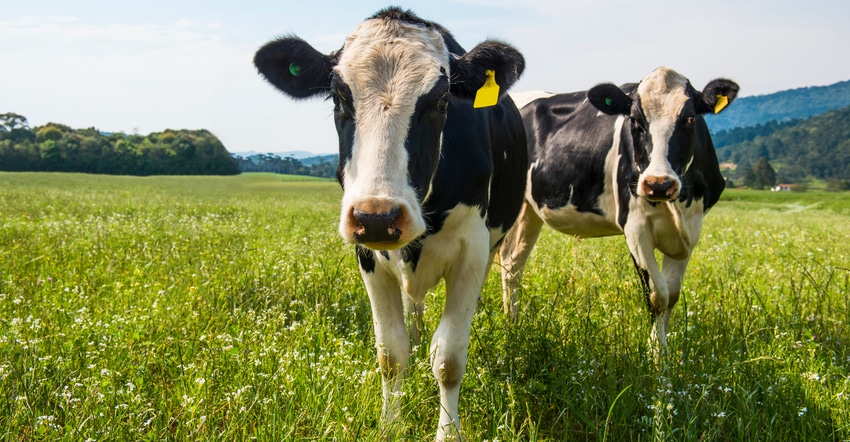October 9, 2020

Given years of work with livestock, you might think that nutritionists and animal health experts would have a good idea of what microbes in the animal can lead to better productivity. Say that to Michael Seely and you get a different answer: “Your statement is inaccurate.”
Seely is a co-founder and CEO of Native Microbials, which until recently went by the name Ascus Biosciences. Seely’s view on the inaccuracy of that statement about knowing what works in an animal’s gut to boost health and productivity stems from his company’s wide-ranging work to dig in and identify the microbes that really do make a difference.
Take the dairy cow, for instance. The rumen is a complex factory of microbes at work in the animal. Some estimates suggest that the microbial diversity in the rumen includes 100 times more genes than in the cow itself. That population is skewed with a handful of species accounting for more than 90% of the biomass; while a minority may account for fewer cells, it offers rich species diversity. Which are making a difference?
“Through genetic sequencing as well as proprietary data science methods, we’ve deciphered these complicated animal microbiome data sets. Native understands the rumen microbial community,” Seely says.
And that’s a driver for the new name. Native Microbials “clearly communicates our unique approach to provide products that achieve optimal animal outcomes using naturally occurring microbes native to each animal species,” he says.
Seely explains that there is a lot of academic information surrounding animal biology, but “a lot of it is antiquated, principally due to the fact that the animal sciences do not get sufficient public funding.” His stance is that with the microbial genomics information obtained by Native Microbials, the company is in a strong position to identify those “gut bugs” that really make a difference in an animal’s performance. Seely notes that sometimes the metabolic capabilities of microbes of interest are reflective of processes that are new to standard animal science know-how.
And the company isn’t sticking exclusively to dairy cows. Work has been done to identify opportunities in beef, swine, aquaculture, poultry, and domestic animals, too. Using its proprietary advanced genomics and microbiology techniques, Native Microbials can identify a range of microbes at work in the animal and then determine which — if ramped up — might make a difference in performance and efficiency.
Next challenge is delivery
Identifying microbes that can make a performance difference is what sets Native Microbials apart, but it also benefits from advanced manufacturing tools.
“Even if you identify the coolest microbes from these naturally occurring communities, how do you reduce them to practice to be cost-effective and easy to use for a customer?” Seely asks. “We've acquired technologies and have had to do some creative things from a process development standpoint to avoid the need to spoon-feed our product to individual animals.”
Native Microbials has launched the world’s first endomicrobial (living within the cells or tissue of a host) products, Galaxis and Avius Protect in the U.S.
Galaxis, which works for dairy cows, contains two key rumen microbes that can boost cattle productivity and health. But this is no “keep-it-cold” microbial you have to dole out in a complicated fashion and store in a refrigerator. It comes in sizes of up to 25-kilogram bags, and it can be stored at ambient temperatures on-farm for more than six months with no loss of activity. It can be added to the existing ration and fed during the entire lactation period as a topdress, or in a total mixed ration. And since it’s a natural microbial, no withdrawal period is required.
Seely says a lot of the company’s preservation and delivery technology had been perfected in the vaccine world, where encapsulation of sensitive biological products is almost routine. Finding those technologies and deploying them for these animal microbials has become the secret sauce from a process development standpoint. He adds that the customer experience and use case across all products forces the development team to embrace the reality from the onset. That means every new hire on the product research and development side is required to visit customer farms and sites. “This helps ensure our R&D and product development engine isn’t ignoring the real world,” Seely says.
The hard work of genomic science and discovery, powered by Native Microbials’ team of microbe experts, is starting to bear fruit. While Galaxis 1.0 is on the market and growing quickly, the 2.0 version is in the works for 2021, and Native should have around seven different products in sales mode by 2022 across multiple animal species.
Seely explains that the work of identifying the right microbe is the start, followed by the process of getting regulatory approval. Learn more at nativemicrobials.com.
About the Author(s)
You May Also Like






